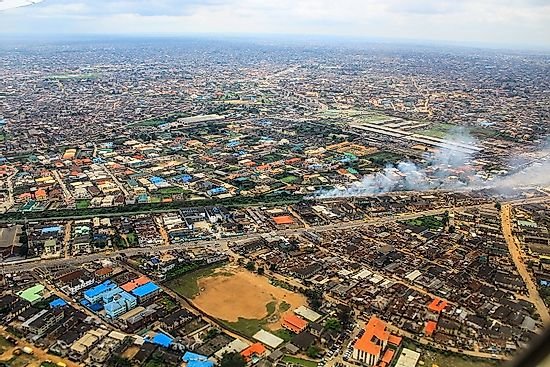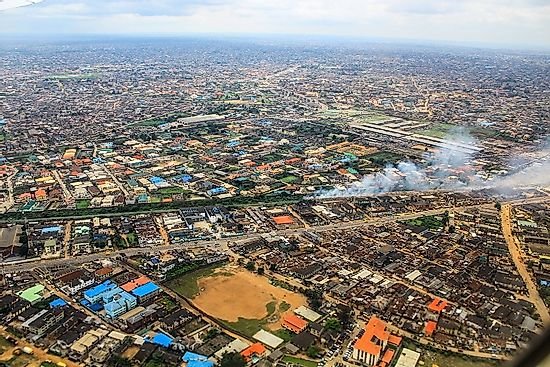Exploring The Largest City In Nigeria By Landmass
The largest city in Nigeria by landmass is Ibadan. Sprawling across vast stretches of territory, Ibadan stands out as a city of immense geographic expanse. Its expansive landscape holds a rich tapestry of history, culture, and modern development. Join us as we delve into the fascinating story of the largest city in Nigeria by landmass, uncovering its hidden gems and unique characteristics that define its prominence. Explore the wonders of Ibadan, where size meets significance in a captivating urban mosaic.
The Largest City in Nigeria by Landmass: Exploring the Vastness of Kano
Introduction: Unveiling the Geographic Marvel of Kano
Welcome to the vibrant and sprawling city of Kano, the largest city in Nigeria by landmass. Situated in northern Nigeria, Kano is not only known for its rich history and cultural heritage but also for its sheer size that sets it apart from other cities in the country. Let’s embark on a journey to uncover the secrets and wonders of this expansive metropolis.
Understanding the Landmass of Kano
When we talk about landmass, we are referring to the total area occupied by a city, including both developed and undeveloped land. In the case of Kano, the city covers a vast expanse of land that stretches out in all directions. With its wide roads, open spaces, and numerous neighborhoods, Kano offers a glimpse into the sheer size and scope of urban living in Nigeria.
The Geography of Kano
Kano is located in the savanna region of Nigeria, characterized by its flat terrain and dry climate. The city is strategically positioned along the trade routes that connect the northern regions of Nigeria to other parts of West Africa. This geographical advantage has played a significant role in shaping Kano into a bustling hub of commerce and culture.
Exploring Kano’s Neighborhoods
Within the expansive landmass of Kano lie various distinct neighborhoods, each with its own character and charm. From the historic walled city of Kano to the modern developments in areas like Nassarawa and Gwale, the city offers a diverse range of living spaces for its inhabitants. Moving through the different neighborhoods of Kano gives you a sense of the city’s vastness and diversity.
A Glimpse into Kano’s History and Culture
Kano has a rich history that dates back centuries, with roots in the ancient Hausa Kingdoms that once flourished in the region. The city served as a major center of trade and Islamic scholarship, attracting merchants, scholars, and travelers from far and wide. Today, Kano remains a melting pot of cultures, traditions, and languages, reflecting its status as a vibrant and dynamic urban center.
The Legacy of the Old Kano Wall
One of the most iconic features of Kano’s historical landscape is the ancient city wall that once surrounded the old city. Built in the 14th century, the wall served as a defensive structure and a symbol of the city’s strength and unity. While much of the wall has deteriorated over the centuries, sections of it still stand as a reminder of Kano’s storied past.
Celebrating Kano’s Cultural Heritage
Kano is renowned for its colorful festivals, traditional crafts, and vibrant music and dance performances. The city’s cultural scene is a reflection of its diverse population and rich history, with influences from the Hausa, Fulani, and other ethnic groups that call Kano home. Exploring Kano’s cultural heritage offers a glimpse into the soul of the city and its people.
Modern Developments and Urban Growth in Kano
In recent years, Kano has seen rapid urbanization and development, with new infrastructure projects, commercial centers, and residential areas sprouting up across the city. The expansion of Kano reflects its role as a key economic and political center in northern Nigeria, attracting businesses, investors, and migrants looking for opportunities in the city.
The Role of Kano in Nigeria’s Economy
As the largest city in Nigeria by landmass, Kano plays a crucial role in the country’s economy, particularly in sectors such as agriculture, manufacturing, and commerce. The city is known for its bustling markets, industrial clusters, and entrepreneurial spirit, making it a vital hub for trade and investment in the region. Kano’s economic significance is a testament to its size and influence within Nigeria.
Sustainable Urban Planning in Kano
With the rapid growth of its population and infrastructure, Kano faces the challenge of balancing urban development with environmental sustainability. Initiatives such as green spaces, public transportation systems, and waste management programs are being implemented to ensure that Kano remains a livable and eco-friendly city for its residents. The efforts to promote sustainable urban planning in Kano reflect a commitment to preserving the city’s natural resources and enhancing the quality of life for its inhabitants.
Conclusion: Embracing the Vastness of Kano
In conclusion, the largest city in Nigeria by landmass, Kano, offers a unique blend of history, culture, and urban life that sets it apart as a truly remarkable destination. From its expansive geography to its rich traditions and modern developments, Kano embodies the spirit of growth and diversity that defines the Nigerian experience. As we continue to explore the wonders of Kano, we discover a city that is as vast and diverse as the land it occupies, inviting us to experience its beauty and complexity in all its glory.
5 Largest Cities in Nigeria by Land mass
Frequently Asked Questions
What is the largest city in Nigeria by landmass?
Lagos is the largest city in Nigeria by landmass. It covers an area of approximately 1,171 square kilometers.
How does the land size of Lagos compare to other cities in Nigeria?
Lagos stands out as the largest city in Nigeria in terms of landmass. Its size surpasses that of other major cities in the country, making it a significant urban area.
Why is the landmass of Lagos important?
The large landmass of Lagos accommodates its growing population and contributes to its economic significance as a major hub for commerce, industry, and cultural activities in Nigeria.
Final Thoughts
Lagos, the largest city in Nigeria by landmass, is a vibrant hub of culture, business, and entertainment. With its sprawling size and diverse population, Lagos stands out as a bustling metropolis full of opportunities and energy. As the largest city in Nigeria by landmass, Lagos continues to attract residents and visitors alike with its dynamic atmosphere and unique blend of tradition and modernity. In conclusion, Lagos remains a captivating destination and an essential part of Nigeria’s identity.






